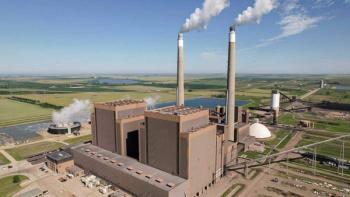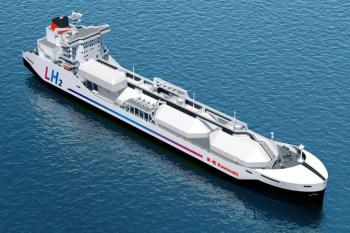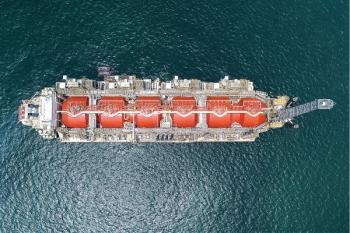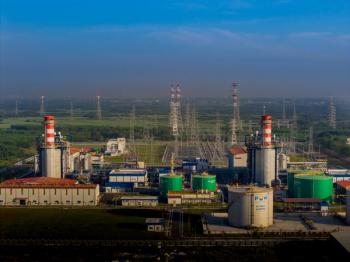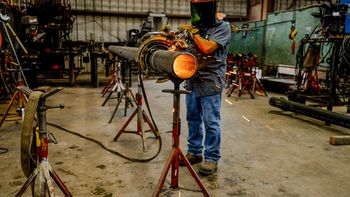
Kawasaki Constructing Demo Facility for New Hydrogen Compressor: KM Comp-H2
The centrifugal hydrogen compressor uses a newly developed impeller to handle high flow rates, boost hydrogen pressure, and improve liquefaction efficiency.
Kawasaki Heavy Industries (KHI) started building a hydrogen compressor demonstration facility at its Harima Works in Hyogo Prefecture, Japan. The facility will test the company’s new, world-first centrifugal hydrogen compressor for hydrogen liquefaction plants, the KM Comp-H2. KHI expects to complete construction in November 2025, followed by one year of operational testing.
The demonstration machine has been developed and completed under the Green Innovation Fund project, dubbed “Development of Large-Scale High-Efficiency Machineries for Hydrogen Liquefiers,” and sponsored by the New Energy and Industrial Technology Development Organization.
KM Comp-H2
The new machine achieves high-boosting performance through ultra-high-speed rotating technology, including KHI’s newly developed impeller, which optimizes a small molecular weight gas like hydrogen. Its centrifugal design handles high flow rates and reduces the installation footprint by approximately 86% compared to current hydrogen compressors.
It is designed to increase the pressure of refrigerant hydrogen gas and improve efficiencies in the liquefaction process, contributing to lower hydrogen supply costs. After pressure boosting, the refrigerant gas cools the feed hydrogen gas, which serves as a raw material for transportable liquefied hydrogen.
In addition to using the compressor at hydrogen liquefaction plants, KHI will apply its collected knowledge and data to develop new centrifugal hydrogen compressors for hydrogen supply pipelines. These transport-centric machines will help to satisfy future demands as hydrogen energy expands. Also, KHI is currently developing a large-scale centrifugal hydrogen compressor designed for 100% pure hydrogen to enhance liquefaction efficiency.
More KHI News
In early November 2024,
KHI is attempting to reduce global CO2 emissions and contribute to a net-zero carbon society through its technologies, such as Kawasaki CO2 Capture. LETA is also developing decarbonization technologies in Australia and internationally with global trading partners.
In late January 2024, KHI agreed to begin demonstration tests in April for the
Tracking this data will ensure traceability for low-carbon hydrogen, visualize complex hydrogen distribution, and facilitate concise hydrogen trading. KHI also plans to launch four additional services and expand its service offerings to meet market demand. The four services will support hydrogen trading, low-carbon hydrogen certification applications, assessment and management of greenhouse gas emissions and carbon intensity and ensure traceability through the digital management of attribute information.
Also in January, KHI, Toyo Engineering, JGC Corp., and Chiyoda Corp. signed an agreement to establish a joint venture to enhance the front-end engineering design execution for a
Newsletter
Power your knowledge with the latest in turbine technology, engineering advances, and energy solutions—subscribe to Turbomachinery International today.

